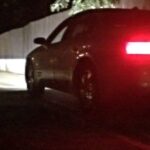The OBD2 code P0174 indicates a “System Too Lean (Bank 2)” condition in your vehicle’s engine. If you’ve encountered this code using your OBD2 scanner, understanding its causes and potential fixes is crucial for maintaining your car’s performance and fuel efficiency. As a car expert at carparteu.com, I’ll break down what P0174 means and guide you through diagnosing and resolving this issue, drawing from common experiences, particularly within the BMW E46 community.
Understanding the P0174 Code
The P0174 code signals that your engine’s Bank 2 is running leaner than it should. In simpler terms, there’s too much air and not enough fuel in the air-fuel mixture entering the combustion chamber of engine bank 2. Modern engines rely on a precise air-fuel ratio (around 14.7:1 for gasoline engines) for optimal combustion, fuel economy, and emissions control. When the engine control unit (ECU) detects a lean condition exceeding a certain threshold, it triggers the P0174 code and often the P0171 (System Too Lean (Bank 1)) code as well. Bank 2 refers to the side of the engine opposite to cylinder number 1. On an inline engine, there is only one bank. On a V-type engine, you’ll have two banks.
Common Causes of P0174
Diagnosing a P0174 code involves systematically checking potential causes, many of which are common culprits in vehicles like the BMW E46. Here’s a breakdown of the typical issues to investigate:
1. Intake Air Leaks
Unmetered air entering the intake system after the mass airflow sensor (MAF) can cause a lean condition. This is a very common issue and a good starting point for diagnosis.
- Intake Boots: Inspect your intake boots, the rubber hoses connecting the MAF sensor to the throttle body and intake manifold. Over time, especially in BMW E46 models, these boots can crack and degrade, leading to vacuum leaks. Replacement is often a worthwhile preventative measure if they are original.
- Vacuum Hoses: Check all vacuum hoses for cracks, disconnections, or brittleness. These hoses are critical for various engine functions and leaks can disrupt the air-fuel mixture.
- Intake Manifold Gaskets: While less frequent, intake manifold gasket leaks can also introduce unmetered air.
2. Faulty DISA Valve
The DISA (Differential Intake System Actuator) valve is a BMW-specific component designed to optimize air intake flow at different engine speeds. A malfunctioning DISA valve can contribute to lean conditions.
- DISA Valve Flap: The DISA valve contains a butterfly valve with a plastic pin. This pin can break, causing the flap to become loose or flop around. This can disrupt airflow and lead to lean codes like P0174. Inspect the DISA valve by removing it and checking the flap for play. Replacement is recommended if the flap is loose.
3. Fuel Delivery Issues
Problems within the fuel system can restrict fuel flow, resulting in a lean mixture.
- Fuel Injector Cleaner: Try using a reputable fuel injector cleaner like Techron. Fuel injectors can become clogged over time, restricting fuel delivery. An “Italian tune-up” – a spirited drive with occasional high RPMs – can also help clean out injector deposits.
- Fuel Filter: A clogged fuel filter can restrict fuel flow. Consider replacing the fuel filter, especially if it hasn’t been done recently.
- Fuel Pump: A failing fuel pump might not deliver sufficient fuel pressure. Fuel pressure testing can help diagnose this.
4. Crankcase Ventilation (CCV) System Problems
The CCV system recirculates crankcase gases back into the intake manifold. Leaks or failures in this system can cause vacuum leaks and lean conditions.
- Oil Separator and Hoses: Inspect the oil separator for oil leaks and check the CCV hoses for brittleness and cracks. These hoses are prone to failure, especially on older BMWs. If there’s oil around the oil separator, it’s a strong indication of CCV system issues. Replacing the CCV system, including the oil separator and hoses, is a common maintenance item on BMW E46 models, particularly if it’s never been replaced.
5. Mass Air Flow (MAF) Sensor Issues
While less common for P0174 specifically, a dirty or malfunctioning MAF sensor can provide incorrect readings to the ECU, potentially leading to lean conditions.
- MAF Sensor Cleaning: Clean the MAF sensor using a MAF sensor cleaner. Ensure you follow proper procedures to avoid damaging the delicate sensor wires.
6. Vacuum Leaks
Beyond specific components, general vacuum leaks throughout the intake system can cause P0174.
- Smoke Test: A smoke test is a comprehensive way to identify vacuum leaks. This involves introducing smoke into the intake system and observing where it escapes.
DIY Steps and Tools
Addressing a P0174 code is often achievable as a DIY project, especially for common issues like intake boots, DISA valve, and CCV system replacement.
- OBD2 Scanner: Invest in an OBD2 code reader. A basic, inexpensive scanner is sufficient to read and clear codes. This is essential for confirming the P0174 code, clearing codes after repairs, and monitoring if the code returns.
- DIY Guides: Numerous online DIY guides and videos are available for tasks like intake boot replacement, DISA valve replacement, CCV system service, and MAF sensor cleaning, particularly for BMW E46 models.
- Systematic Approach: Follow a systematic approach, starting with the most common and easily checked items like intake boots and vacuum hoses.
Conclusion
The OBD2 P0174 code signifies a lean air-fuel mixture on engine bank 2. By systematically inspecting components like intake boots, the DISA valve, CCV system, and considering fuel delivery and vacuum leaks, you can effectively diagnose and resolve the P0174 code. Utilizing an OBD2 scanner and embracing a DIY approach can save you significant repair costs and help you maintain your vehicle’s optimal performance. Remember to address these issues promptly to prevent potential engine damage and ensure your car runs efficiently.
